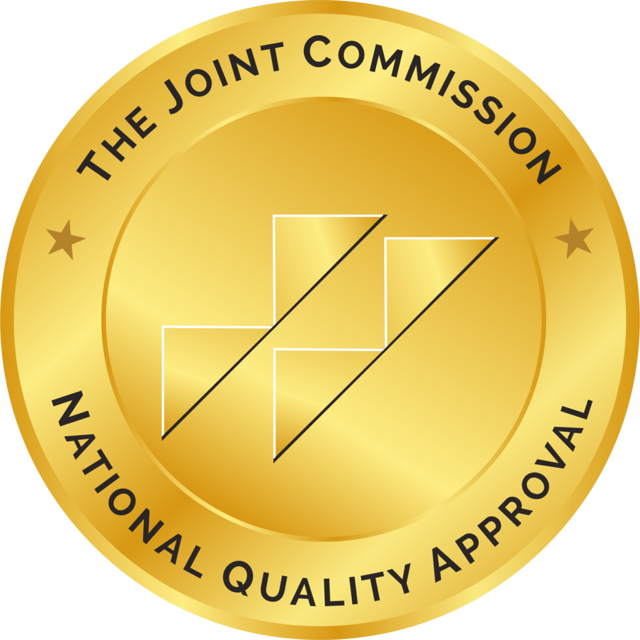
Specialty Care
Infusion treatments, whether at home, in a healthcare clinic or other non-hospital setting, require highly trained Specialty Care nursing and pharmacy support. Trust becomes essential for these higher-risk infusion therapies that require ongoing care.

Clinical Nutrition
Nutrition plays an essential role in sustaining quality of life for those who require care for complex conditions. Pentec Health provides personalized clinical nutrition solutions and superior community-based care.

Disease States
Managing the multifaceted needs for a variety of conditions requiring clinical nutrition and specialty care therapies, services and products. This includes patients with kidney disease, kidney failure, chronic, non-healing wounds, gastrointestinal conditions, rare metabolic disorders, chronic pain, muscle spasticity or cancer within or that has metastasized in the liver.

Continuing Education
By leveraging decades of clinical expertise, we are able to successfully demonstrate our industry leadership through webinars, speaker programs and research studies. We take pride in sharing valuable insights that enhance clinician education and practice.

Patient Resources
We are committed to supporting patients by empowering them with knowledge and resources needed to navigate their healthcare journey with confidence.

Pentec Health
Pentec Health is a national leader in clinical nutrition and specialty care integrating pharmacy services with clinical excellence to enhance the complex care journey.

The Pentec Health Difference: Champion for Patients, Trusted Partner for Providers
Improves Access to Clinical Nutrition and Solves and Simplifies Complex Care Challenges
As a market-leading Complex Care Provider, Pentec Health takes pride in providing care that stands head and shoulders above the rest. The Pentec difference is built on understanding the challenges faced by patients and their families. We are committed to helping families that require clinical nutrition secure a brighter future.
You work hard to help your patients live their fullest and healthiest lives, knowing that the more appropriate nutrition options available to them, the more opportunities they have to stay healthy. But it can be a struggle, especially for patients who don’t respond to certain medical foods or find other foods don’t meet their lifestyle needs. These situations present unique challenges that demand specialized care and innovative solutions. That’s why Pentec is expanding into emerging and underserved areas of clinical nutrition, to provide access to a variety of medical foods and medical nutritional products for patients living with rare metabolic diseases like phenylketonuria (PKU) and sickle cell disease (SCD).
We also support patients — and you — by providing comprehensive services to address the unique needs and challenges faced by these patients, including help with navigating the complexity of insurance coverage (across Medicaid and private insurance plans), product distribution and clinical care management.
And while companies are moving away from providing high-touch, specialized clinical nutrition services — such as treatment for PKU — Pentec is doubling down to further invest in and provide full services as no other provider can. Our growth into rare disease care is driven by our commitment to providing the best solutions available to your patients, whether through new technology applications, acquisitions or partnering with innovators who are developing effective, novel treatments and enhancing existing products.
The Pentec difference: Comprehensive service, from coverage to clinical support
Many patients with rare diseases and their families struggle to gain and sustain access to their clinical nutrition due to insurance coverage challenges. Pentec helps patients, families and their providers — including dietitians — overcome this significant barrier by navigating complex billing and reimbursement issues. We maintain contacts with both government and private insurers and have a deep understanding of all the requirements of reimbursement, providing our patients with the best possible choices for therapy coverage. Additionally, our payment specialists assist patients to help them understand their benefits and responsibilities, and help with insurance verification and prior authorizations. That’s vital because ensuring their clinical nutrition is covered improves patients’ adherence, helping them live healthier lives.
On the clinical side, our client support team works hand in hand with our specialized clinical case managers, highly skilled nursing staff and pharmacists who provide personalized support for each patient. By simplifying the challenges of treatment management for rare diseases, we help ensure equitable access to healthcare services.
The Pentec difference: Improved access for the underserved
Pentec’s growth builds on our foundation of excellence in patient-specific compounded sterile medications and nutrition therapies delivered by our highly skilled clinical team. It is part of our commitment to ensure that medical foods are more accessible. We are growing so that we can better serve families, patients and providers, including those living with rare diseases.
Pentec supports a number of rare diseases via our medical foods offerings, including PKU, SCD, homocystinuria (HCY), tyrosinemia type 1 (TYR), maple syrup urine disease (MSUD), glutaric acidemia type 1 (GA-1) and urea cycle disorders.
We recently acquired ZOIA Pharma, the only medical food provider in the U.S. focused exclusively on supporting the rare disease community. ZOIA is the exclusive distributor of medical foods for PKU, including groundbreaking PKU GOLIKE® as well as Firstplay Dietary Foods and Promin low-protein foods. Through this acquisition and collaboration, we have combined our expertise, resources and advocacy efforts to reach more people and make a profound difference in their lives.
About 16,5000 people are living with PKU in the U.S. and they must adhere to a special low-protein diet to prevent behavioral problems, developmental delays and severe intellectual disability. Following the diet is challenging, so access to a variety of foods is important for adherence. PKU GOLIKE and Firstplay provide that needed variety.
A family of products, PKU GOLIKE is the first prolonged-release phenylalanine (Phe)-free medical food for the dietary management of PKU for both children and adults. The acquisition by Pentec ensures ZOIA customers have access to PKU GOLIKE, which was designed to mimic natural proteins and address common patient complaints about medical foods, including gastrointestinal (GI) upset, unpleasant flavor, aftertaste and bad breath.
Firstplay offers more than 100 low-protein foods, including cereal, pasta, meat substitutes, bread, breakfast bars, smoothies and desserts. A U.K.-based family company, Firstplay began manufacturing low-protein foods in 1984, launching the Promin brand in 1993 in response to demands from patients, parents and healthcare professionals. Firstplay continues to draw inspiration from the low-protein community to create additional foods.
And through our recent partnership with Lobe Sciences Ltd., Pentec is the exclusive U.S. distributor of Altemia™, the first medical food in the U.S. designed specifically for children and adults with SCD, one of the most underserved communities in healthcare. Altemia is Lobe’s proprietary formulation of emulsified docosahexaenoic acid ethyl ester (DHA) concentration designed for patients with SCD. Previous studies have demonstrated beneficial outcomes for patients while taking the primary component of Altemia under physician supervision, including a reduction of vaso-occlusive crisis (VOC) and hospital visits and improvement in clinical biomarkers of inflammation.1,2
Of the approximately 100,000 people in the U.S. with SCD, 94% are Black. The life expectancy of those with the most severe form of SCD is 30 years less than those without the disease. As a novel dietary management approach to SCD, Altemia offers new options for these vulnerable patients.
Pentec’s dedicated team and deep expertise in providing personalized clinical nutrition solutions to patients and their providers help overcome barriers to care and improve outcomes. We are committed to collaborating with insurance providers and policymakers to ensure medical foods become more affordable and, therefore, accessible. Experience the Pentec difference and learn more about how we are helping solve and simplify complex care challenges: https://pentechealth.com/medical-foods/.
Refrences: 1. Daak, A. et al. (2020). Biochemical and therapeutic effects of Omega-3 fatty acids in sickle cell disease. Complementary Therapies in Medicine, 52, 183-188. 2. Wandersee, N. et al. (2015). Dietary supplementation with docosahexanoic acid (DHA) increases red blood cell membrane flexibility in mice with sickle cell disease. Blood Cells, Molecules, and Diseases, 54(2), 183-188.

Proudly Quality Accredited
National Quality Approval
The Joint Commission

Accredited Practice Transition
Program With Distinction
American Nurses Credentialing Center
By using this website you accept our privacy policy. Choose the browser data you consent to allow:
